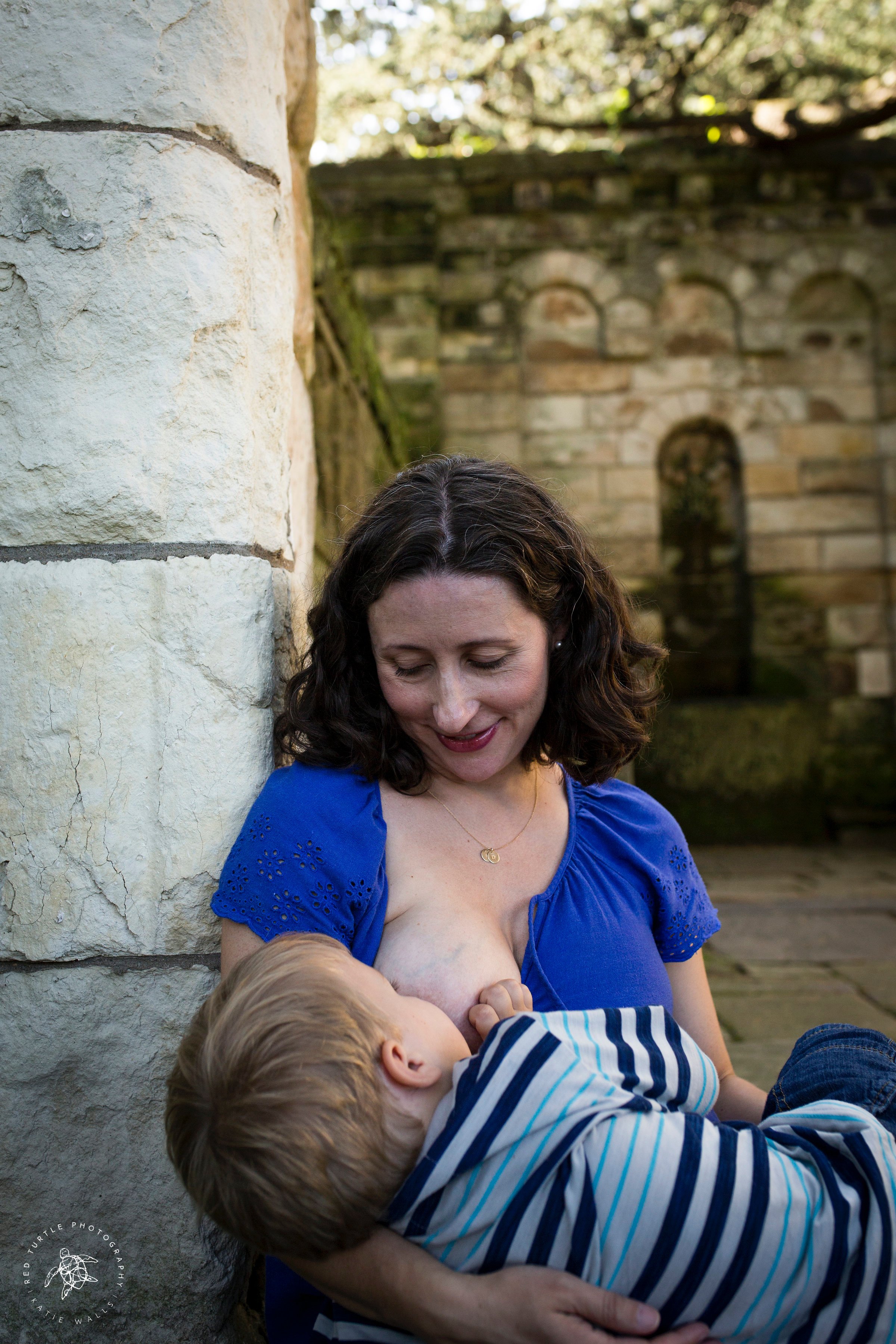Breastfeeding in the First Year: Staying Open to Change
(Pictured above are a few of The Center’s previous clients who were feeding through the first year and beyond.)
Rapid changes occur in your baby’s first weeks, months, and years of life. As you witness your baby’s development, it is natural for your feeding relationship to change as well. Looking at breastfeeding patterns from the first week of life, all the way to that first year will look completely different. But what might these differences look like and what can you expect as you and your baby evolve together?
The first days and weeks can be intense. You and your baby are learning each other and creating a special bond. Your baby is new to the world and is experiencing everything for the first time. They will be eating frequently (at least every 2-3 hour), may be sleepy, and usually take anywhere from 20-40 minutes per feeding. Your milk will also be coming in (around day 3-5 postpartum), which may cause you to experience feelings of engorgement or fullness/swelling within the breasts/chest. Your breasts/chest may also leak, and your nipples may be sensitive as they adjust to this new feeding schedule. Please also note that you should seek help from a Lactation Consultant if you experience continual pain while feeding, extremely sore or damaged nipples that are not improving or anything else that may be cause for concern. You are learning how to best facilitate/assist with latch, how to manage your milk supply, and how to follow your baby’s hunger cues, all while healing from birth.
It is totally normal for these early days/weeks to feel overwhelming at times. As you both get in the groove of what feeding looks like for you and your family, things will continue to evolve. As your baby grows, they will become more efficient at feeds, taking in a larger quantity in a shorter amount of time. You will both also be more flexible and used to positioning, feeding techniques, etc. so getting set up and comfortable for feeds should become easier.
At around 6 months and beyond, your baby will start solids. (If interested, consider joining us for our Starting Solids class). This will also impact your feeding relationship, as they are now getting fuel from another calorie source. This can mean that your feeds are slightly less frequent, or shorter, the more your baby explores solid foods. Your baby’s teeth may also start to erupt. While your baby may experience some soreness around their gums, fussiness and in some cases a light fever, this should not impact breastfeeding. Your baby should not use their teeth to feed, however, if your baby starts to bite you consult help to find strategies that will work best for you and your baby. It is also normal for you baby to become distracted while feeding as they start to notice and understand the world around them.
As your baby continues to get older, you will also be able to communicate with them and set boundaries around feeding. Remember that feeding is never one size fits all. You and your baby will have your own beautiful and unique experience that presents with triumphs and challenges. Know that you are doing great and that you always have support through this evolution.
By Beth Corley-Goldberg BSN, RN, IBCLC Candidate, BCGW Intern




